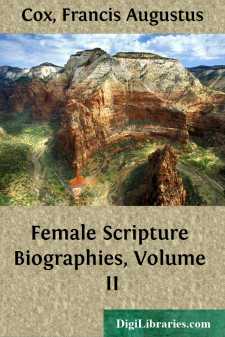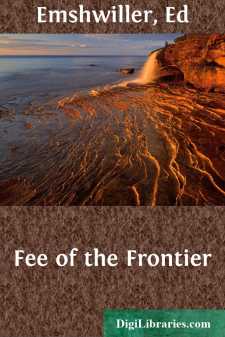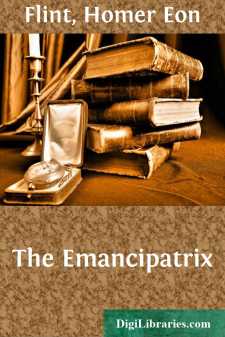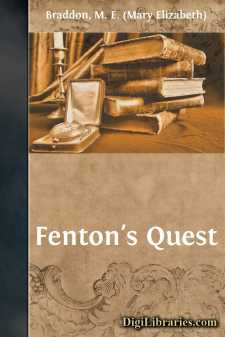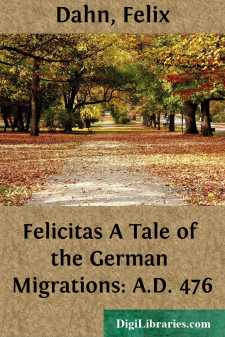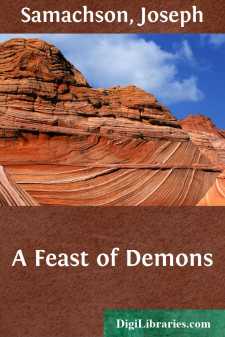Fiction
- Action & Adventure 180
- Biographical 15
- Christian 59
- Classics 6965
- Coming of Age 5
- Contemporary Women 3
- Erotica 8
- Espionage/Intrigue 12
- Fairy Tales, Folklore & Mythology 236
- Family Life 169
- Fantasy 117
- Gay 1
- General 596
- Ghost 32
- Historical 808
- Horror 43
- Humorous 160
- Jewish 25
- Legal 4
- Medical 22
- Mystery & Detective 315
- Political 49
- Psychological 41
- Religious 64
- Romance 159
- Sagas 11
- Science Fiction 730
- Sea Stories 113
- Short Stories (single author) 537
- Sports 10
- Suspense 1
- Technological 8
- Thrillers 2
- Urban Life 31
- Visionary & Metaphysical 1
- War & Military 173
- Westerns 199
Fiction Books
Sort by:
"HAIL, THOU THAT ART HIGHLY FAVOURED, THE LORD IS WITH THEE! BLESSED ART THOU AMONG WOMEN!" Such was the congratulatory language in which the commissioned angel addressed the virgin of Nazareth, when about to announce the intention of Heaven, that she should become the mother of Jesus; and such the strain which we cannot help feeling disposed to adopt, while recording her illustrious name, and...
more...
by:
Ed Emshwiller
rom inside the dome, the night sky is a beautiful thing, even though Deimos and Phobos are nothing to brag about. If you walk outside, maybe as far as the rocket field, you notice a difference. Past the narrow developed strip around the dome, the desert land lies as chilled and brittle as it did for eons before Earthmen reached Mars. The sky is suddenly raw and cruel. You pull your furs around your...
more...
by:
Henry Wood
BY THE EARLY TRAIN. The ascending sun threw its slanting rays abroad on a glorious August morning, and the little world below began to awaken into life—the life of another day of sanguine pleasure or of fretting care. Not on many fairer scenes did those sunbeams shed their radiance than on one existing in the heart of England; but almost any landscape will look beautiful in the early light of a...
more...
by:
Homer Eon Flint
I THE MENTAL EXPEDITION The doctor closed the door behind him, crossed to the table, silently offered the geologist a cigar, and waited until smoke was issuing from it. Then he said: "Well," bluntly, "what's come between you and your wife, Van?" The geologist showed no surprise. Instead, he frowned severely at the end of his cigar, and carefully seated himself on the corner of the...
more...
CHAPTER I THE COMMON FEVER A warm summer evening, with a sultry haze brooding over the level landscape, and a Sabbath stillness upon all things in the village of Lidford, Midlandshire. In the remoter corners of the old gothic church the shadows are beginning to gather, as the sermon draws near its close; but in the centre aisle and about the pulpit there is broad daylight still shining-in from the wide...
more...
Chapter I.Superiority of Man in the Universe--Present Degradation of Reason--The mere Philosopher and the Christian Contrasted--God seen in all his Works--Creation of Man--His Corporeal and Mental Constitution--Value of the Soul--Adam in Paradise--Alone--Supplied with a Help Meet--Revelation points out the True Dignity of the Female Character--One Woman given to the Man--The Fall--Aggravated and...
more...
by:
Felix Dahn
INTRODUCTION. Some years ago I was at work in Salzburg: in the library among the old records, and in the Museum of Roman antiquities. My studies were principally concerned with the fifth century: the time when the Germanic tribes invaded these regions, the Roman garrisons retiring with or without resistance, while many settlers remained in the land. Peasants, trades-people, mechanics, would not forsake...
more...
by:
Joseph Samachson
hat year we were all Romans, and I have to tell you that I look awful in a toga and short sword, but not nearly as awful as the Greek. You go to one of the big schools and naturally you turn out for the Class Reunion. Why not? There's money there, and good fellowship, and money, and the chance of a business contact that will do you some good. And money. Well, I wasn't that fortunate—and you...
more...
by:
Elinor Glyn
HEAVILAND MANOR Heaviland Manor Dearest Mamma,—I hope you are taking every possible care of Hurstbridge and Ermyntrude and seeing that the sweet angels do not eat pounds of chocolate between meals. If I had known how Harry was going to behave to me over such a simple thing as the Vicomte's letter, I could never have let you take the children with you to Arcachon for these next months—I am...
more...
CHAPTER I. THAT STRANGE LETTER. It was in the latter part of the eighteenth century. The dwelling was a plain frame structure, spacious, and of the style of that day (the second story projecting a few inches beyond the first), and was kept painted as white as snow. It stood in the south suburb of the then little city of Middletown, Conn., between two hills on the right bank of the Connecticut River, at...
more...


